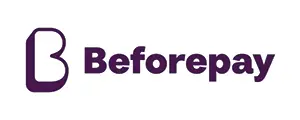
Beforepay Pay On Demand
Maximum Loan Amount: $1,000
Loan Term: up to 4 weeks
Fees: 5% transaction fee per advance
Go to site
We’re reader-supported and may be paid when you visit links to partner sites. We don’t compare all products in the market, but we’re working on it!
| Service | Amount available | Costs |
| CommBank AdvancePay | $300 to $750 |
|
| Beforepay | Up to $1,000 |
|
| MyPayNow | Up to 25% of your wages (limit of $1,250 per advance) |
|
| InstaPay | Access up to 50% of your salary (to a maximum of $250) per week through Employment Hero. Funds are available from $100 to $250 per transaction. |
|
| Earnd | A portion of your income agreed on by your employer |
|
| Fupay | Up to $200 |
|
| PayActiv | Up to $500 |
|
Pay on demand services are app-based loan products that give you instant or fast access to a portion of your pay ahead of payday. They usually connect either to your bank account or to your employer. These loans are then usually automatically repaid once your employer pays you. In the case of most of these platforms, the process will look something like this:
These apps are designed to help the millions of Australians who are living pay cheque to pay cheque. Borrowers can use these loans for small expenses such as travel costs or groceries, or to bridge the gap in funds for a larger essential bill. Their intended use is basically anything that an interest-free buy now, pay later service would be unable to cover. If repaid in full and on time, this type of finance is significantly lower-cost than traditional payday loans.
There are three main types of pay on demand services available in Australia. These include:
You may find the following features with pay on demand services:
If using a pay on demand service, it's important to be aware of the following:
Pros | Cons |
|---|---|
|
|
Generally, how you apply for a pay on demand service will depend on the type of pay on demand service that you are opting for.
Employer offered services:
Pay on demand apps:
Bank offered services:
While reasonably similar products, there are some differences between pay on demand services and payday loans that can make them more suitable for different purposes.
Earnd is a pay on demand service that lets you access a portion of your paycheque before payday without paying any fees or interest.
Learn more about how PayActiv's Earned Wage Access service can help you access up to $500 of your paycheque for a $5 fee charged fortnightly (only if you access your wage before payday).
Find out more about MyPayNow, the pay on demand service that gives you instant access to up to 25% (to a limit of $750) of your salary any time, anywhere, without involving your employer.
InstaPay is a pay-on-demand service offered by Employment Hero that allows employees to access salary advances of up to $250 per week for a flat fee starting from just $2.
Find out more about AdvancePay, the Commonwealth Bank's new "pay on demand" platform accessible to creditworthy CommBank customers.
Beforepay is a smart app that allows you to access up to $200 of your wages ahead of your next payday, while simultaneously offering you budgeting solutions.